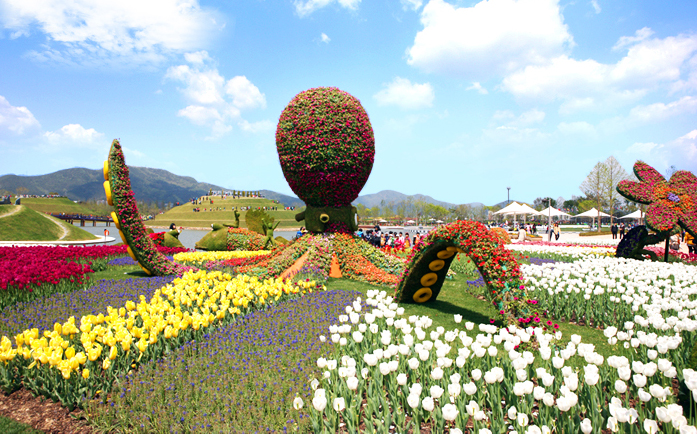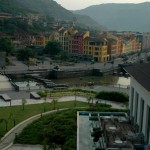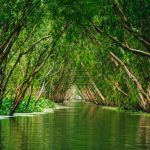Suncheon, South Korea, is a hidden gem on the southwest Korean Peninsula, renowned for its stunning landscapes, fertile lands, and pristine waters. Beyond its natural beauty, Suncheon is gaining recognition for its commitment to sustainability, innovation, and ecological balance, making it a fascinating destination for TESOL teachers who care about the environment. Known as South Korea’s “Garden City,” Suncheon offers not only rewarding teaching opportunities but also a chance to live in a city that values harmony with nature.
Why Teach in Suncheon?
Teaching English in Suncheon is a fantastic opportunity for TESOL-certified teachers to immerse themselves in South Korean culture while enjoying a supportive, eco-friendly community. The demand for English teachers in South Korea remains high, and in Suncheon, educators are especially appreciated as the city continues to grow and attract international attention. Suncheon’s focus on environmental sustainability and ecological education creates a unique atmosphere where teachers can incorporate environmental awareness into their lessons, inspiring students to think globally while learning English.
The International Garden Expo and Suncheon’s Green Vision
In 2013, Suncheon hosted the International Garden Exposition, transforming itself into a model city for eco-friendly practices and sustainable tourism. This event showcased innovative land use, water conservation, and advanced irrigation systems, leaving a lasting impact on the city’s development. The expo also established Suncheon as an educational center for ecological stewardship. English teachers here have the chance to incorporate elements of Suncheon’s green vision into their curriculum, helping students appreciate the environmental importance of their city. Classes can even include outdoor activities in the scenic Suncheon Bay Wetland Reserve, known for its vast reed fields, rare bird species, and ecological richness.
Job Opportunities and TESOL Certification
Suncheon’s schools, language institutes, and private academies (hagwons) frequently hire native English-speaking teachers. Most positions require a TESOL or TEFL certification, a bachelor’s degree, and an interest in cultural exchange. TESOL teachers in Suncheon can look forward to competitive salaries, health insurance, and sometimes housing allowances, making it a financially viable option. The cost of living in Suncheon is relatively low compared to major cities, and teachers can enjoy fresh, local produce and regional specialties without breaking the bank. For teachers new to South Korea, Suncheon offers a friendly and welcoming environment, making it a comfortable place to adjust to life abroad.
Beyond the Classroom: Exploring Suncheon’s Natural Beauty
Living in Suncheon means being surrounded by some of South Korea’s most breathtaking landscapes. The Suncheon Bay National Garden, created as part of the garden expo, spans over 1,100 acres and features themed gardens from around the world. This tranquil spot is ideal for relaxing walks, picnics, or even outdoor classes. In addition, the Suncheon Bay Wetland Reserve is one of the most biodiverse areas in South Korea and a sanctuary for birdwatchers and nature lovers alike.
Teachers can also experience Korea’s tea culture by visiting nearby Boseong, where tea fields stretch across lush hillsides. Enjoy a cup of award-winning green tea while taking in the serene views – a perfect escape after a week of teaching.
Teaching Tips: Integrating Environmental Themes in Lessons
Suncheon’s emphasis on sustainability presents a wonderful opportunity to engage students in environmental topics through English lessons. Here are some ideas:
- Nature Vocabulary: Introduce vocabulary related to plants, wildlife, and ecosystems. Use local examples like the Suncheon Bay Wetlands to make learning relevant.
- Eco-Friendly Projects: Have students participate in eco-projects, such as creating posters or presentations on ways to protect Suncheon’s natural resources.
- Outdoor Lessons: If possible, take your class outside to observe and discuss the local environment in English, enhancing both language skills and ecological awareness.
- Environmental Debates: Encourage students to discuss global issues, such as climate change, deforestation, and sustainable living practices, developing their conversational skills and critical thinking.
Embracing Life in a Garden City
Life in Suncheon offers a balance between modern amenities and a connection to nature. As the city develops, it retains its commitment to being eco-friendly and community-centered. Living here means experiencing South Korea’s deep respect for nature, from the rich biodiversity of Suncheon Bay to the innovative garden landscapes that attract visitors worldwide. For TESOL teachers, Suncheon offers more than a job – it’s a chance to become part of a community that values sustainable living and environmental education.
If you’re passionate about teaching English in a place where the beauty of nature meets progressive eco-consciousness, Suncheon might be the perfect place for your next teaching adventure. So, pack your TESOL certificate, bring your enthusiasm for the environment, and get ready to inspire young minds in one of South Korea’s most beautiful cities.



